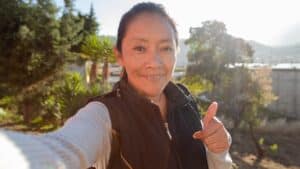
The conversations about retirement sound different than they did 10 years ago. Baby Boomers are learning how to align retirement with our unique needs and individual desires.
There’s no “right way” to retire.
However, current research supports that there are elements to living successfully in retirement that most of us agree on despite the different ways we live out this life stage.
A recent study conducted by Edward Jones, a Fortune 500 financial services company, and Age Wave, under the leadership of Ken Dychtwald, revealed four key ingredients to living well in what they describe as “the new retirement.” They call these essentials the Four Pillars: Health, Family, Purpose and Finances.
These four components aren’t surprising; you’re probably nodding in agreement. But what’s revolutionary is the emergence of data to support that they are of equal importance to prospective retirees.
Gone are the days when getting our financial house in order is the only thing needed for a successful retired life. A wholistic approach to retirement has taken center stage.
We need resources for designing this “new retirement,” especially when we’re just starting out or if we’re retooling our retired lives. Here are three notions worth considering.
Take Time for Self-Reflection
A valuable question to ask as you approach (or re-evaluate) retirement is, “What do I truly want in this phase of my life?”
Your response may come quickly. Or you may need to revisit the question several times to get clarity. The goal is to get to the heart of your ideal retired life by asking how you want retired life to feel, who you want to be in retirement, in what ways you’d like to grow.
Let each of the Four Pillars be a lens through which you frame your response and notice what comes up for you.
Allow What You Value to Lead the Way
As you consider or re-examine retirement, take some time to identify your values and to note how and when (or if) they’re showing up.
Most people I speak with about retirement or aging mention how valuable their time is. They also count strong relationships among what they cherish. Health and well-being are priorities. Lifelong learning, creativity, and giving back often make the list.
Whatever you value deserves your full attention.
Pinpointing what you value most informs you about how you might spend your time or what you could focus on during retirement. You very well might find greater Meaning and Purpose along that trail, too.
Retirement Is a Process Not a Date
The celebrations are over. All the cabinets, closets and drawers in your house are organized. You face the rest of your retired life. For many people that can stretch many years.
And about the time you think you have retirement figured out, something occurs (or occurs to you) that sets you on a new path or gives you a new idea.
Cue change, which is constant no matter what stage of life we’re in.
Your retired life stage is no exception; it changes and develops along with you. So it helps to have a handle on your skill set for managing transition, and it helps to talk with others and get support.
Retirement is a journey and not a destination. Like any journey, it’s filled with opportunity, wonder, and a little magic even as it’s fraught with uncertainty, complications, and surprises.
Fortunately, we’re living in a moment when we’re able to set our own “new retirement” course, using what we already know and what we care about as a map. There’s a lot of trial and error involved, but we can move forward step by step (or inch by inch) and face whatever lies ahead.
We still have a lot to learn. But we have even more to gain.
Let’s Have a Conversation:
What are you learning about the retired life you want to live? What are you valuing most during your retirement years? How are you moving forward during retirement?





